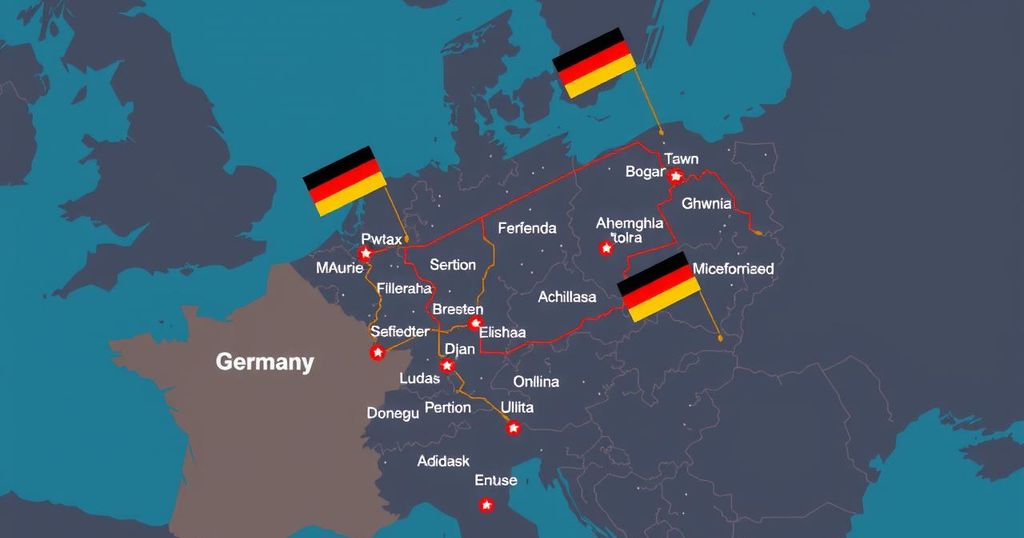Germany is set for elections amid a political upheaval following the collapse of the coalition led by Chancellor Olaf Scholz. Amid rising far-right sentiment and economic challenges, the Christian Democratic Union is leading in polls. Key issues such as military support for Ukraine and debates surrounding public spending versus fiscal restraint will likely dominate the election discourse, impacting Germany’s future direction.
Germany is poised for early elections in February 2024 following the collapse of Chancellor Olaf Scholz’s coalition. The “traffic light” alliance, comprised of the Social Democratic Party (SPD), the Greens, and the Free Democrats (FDP), fell apart after internal disagreements over fiscal policy. Scholz dismissed FDP leader Christian Lindner, triggering a vote of confidence scheduled for December 16. The current political tensions reflect broader challenges, including rising far-right sentiment, a struggling economy, and pressures from international affairs, notably the conflict in Ukraine. In recent polling, the Christian Democratic Union (CDU) has surged ahead, with leader Friedrich Merz positioning himself as a possible successor to Scholz. Merz has committed to reversing various coalition policies, emphasizing tax reductions and stricter immigration controls. Meanwhile, the far-right Alternative for Germany (AfD) is polling at historic highs, underscoring its growing influence despite other parties’ reluctance to engage with it. Key domestic and foreign policy issues are at the forefront of the upcoming election, particularly concerning military support for Ukraine amid shifting U.S. policies following the anticipated return of Donald Trump. Germany’s economy, already showing signs of stagnation, faces challenges such as potential new tariffs and a need for substantial public investment to alleviate economic constraints. The debate around the debt brake—a cap on national borrowing—has become contentious, with some calling for reforms to facilitate necessary spending in infrastructure and defense. Amid this political landscape, various parties will articulate their visions for Germany’s future, as voters prepare to make critical choices that will impact the nation’s direction in a time of uncertainty.
The upcoming election in Germany is significant due to the backdrop of a collapsed coalition government and the emergence of new political dynamics, including a resurgence of the far-right and economic challenges. The coalition of the SPD, Greens, and FDP was marked by ideological tensions, particularly regarding fiscal policy and social spending. Political analysts believe that the instability within the coalition has weakened Germany’s position in the EU and diminished its leadership amidst pressing needs for direction in European affairs. Additionally, the implications of international events, particularly the war in Ukraine, the return of Donald Trump, and shifts in U.S. foreign policy, create further complexity for Germany’s future government. Amidst these developments, the economy remains fragile, with calls for public investment reform resonating within Germany’s political discourse.
In conclusion, Germany faces a critical juncture as it approaches its February elections. The collapse of the ruling coalition reflects deep-seated ideological divisions that may have implications for future governance. Voter sentiment appears to be shifting toward the CDU under Merz, while the rise of the AfD points to changing political sentiments in Germany. The need for economic reform and a coherent foreign policy response, particularly regarding support for Ukraine amid potential U.S. policy shifts, will heavily influence the electoral landscape and the direction Germany will take in the coming years.
Original Source: www.aljazeera.com






